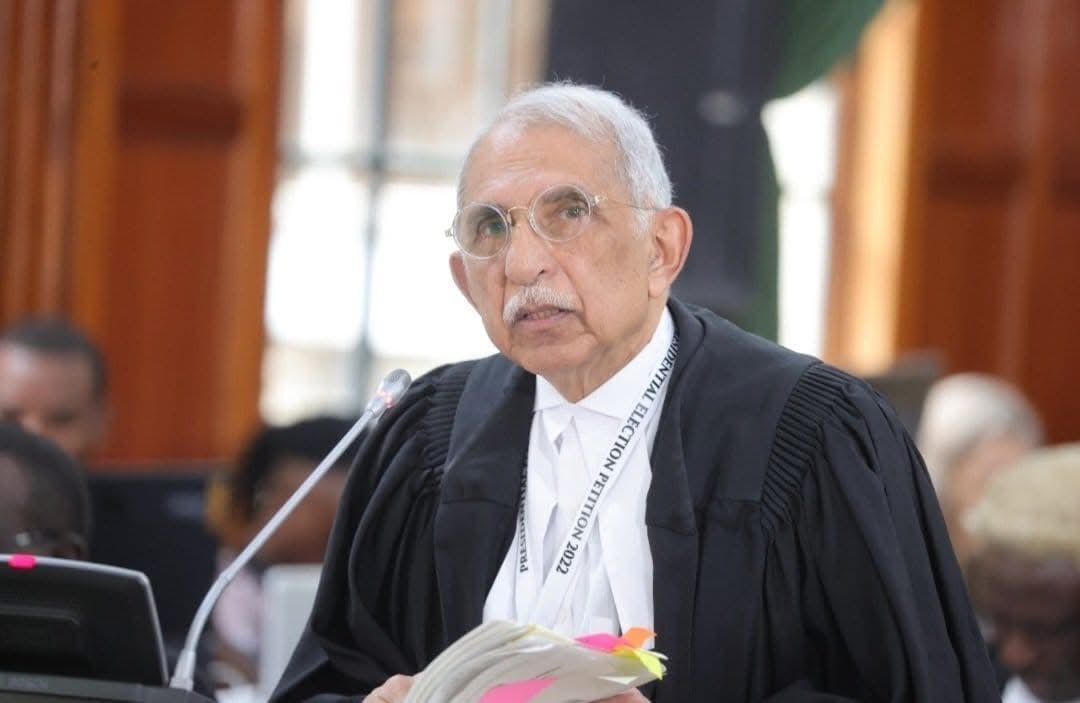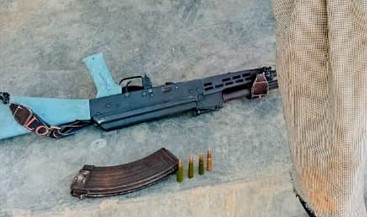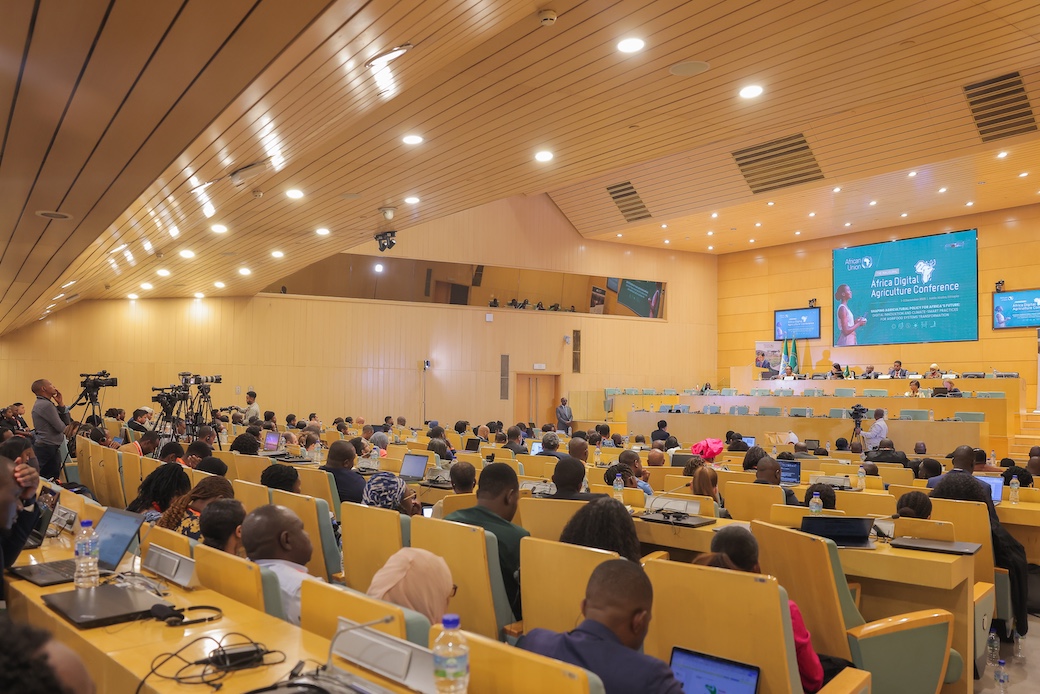Gitobu Imanyara: Let us honour Pheroze Nowrojee by emulating his life

Legal titan Pheroze Nowrojee stood to defend those persecuted by a dictatorial regime.
Challenging former President Daniel Moi's totalitarian regime was a great risk, yet the late human rights defender and legal titan Pheroze Nowrojee stood to defend those persecuted by a dictatorial regime. The Eastleigh Voice Reporter Barack Oduor spoke with Gitobu Imanyara, a human rights lawyer, journalist, and Moi-era detainee, about Pheroze's life and contribution.
Q: Who was Pheroze Nowrojee to you? How would you describe your interaction or relationship with him?
More To Read
- Motion tabled to name Nairobi street in honour of Senior Counsel Pheroze Nowrojee
- Gitobu Imanyara: Why President Ruto does not believe in devolution
- Human rights lawyer Gitobu Imanyara seeks to privately prosecute Deputy Police IG Eliud Lagat
- President Ruto leads Kenyans in mourning former cabinet minister John Koech
- Curtain falls on former cabinet minister John Koech, who dared to resign under Moi
- Pheroze Nowrojee: Legal titan, human rights defender, and voice of conscience
A: Pheroze Nowrojee was my friend, my lawyer, my teacher, my mentor and above all, a personal friend to my family. Our relationship goes back to 40 years ago when I became an advocate.
I knew him way back in 1978. When I was in prison, he was my key advocate, and when in detention, he was key in filing for my herbus corpus and getting me released.
When I started the Nairobi Law Monthly, he was on the founding editorial board. When the magazine was proscribed or banned by the Moi regime, Pheroze and I went to court, and the ban was lifted, and that was the first time in history such a thing had happened!
So, at a personal level, it is a huge loss. He published his last book, "Living the Honourable Profession". In that book, which he dedicated to my family and me, he tells you the nature of the relationship we had.
Q: I read and hear that there were unpleasant tribulations for human rights advocates under Moi's regime. How was it working together with Pheroze those days?
A: You know those were the days of the one-party era when multiparty politics was banned by law, and the old Section 2A of the repelled Constitution was in force. The Nairobi Law Monthly, as a publication, was dedicated to the restoration of human rights and repeal of Section 2A.
The Nairobi Law Monthly was born out of my experience at Kamiti Maximum Prison, where I was jailed on politically motivated charges. Even though I was in a maximum security cell, I got to know many Kenyans who were serving prison sentences for crimes they knew nothing about.
The judiciary was manipulated to send innocent people to prison. These experiences were very shocking, as was the humiliation I underwent while locked down in a cell. I decided that when I get out, I will start a publication that will expose these injustices and violations of human rights in prisons. That is how the Nairobi Law Monthly was born in late 1987.
For the period we were in publication, without fear, we exposed the excesses of the government and abuse of human rights, and we crusaded for the repeal of Section 2A of the Constitution.
Myself and many others, referring to ourselves as Young Turks, were imprisoned, detained, and tortured. The Nairobi Law Monthly was actually banned in July of 1990. I was thereafter arrested and charged with sedition.
Q: For what record or purpose did you and Pheroze challenge Moi's totalitarian regime when you knew too well that you wouldn't succeed in your pursuits?
A: As you rightly say, maintenance of records is very important for lessons and for historians, and in order to place matters on record so that atrocities cannot be revisited.
If, for example,e there was no record of innocent people who were rounded up while fleeing from the violence of 2007 post-election violence, and fled into a church which they assumed was safe, only to get burnt because of ethnic cleansing, we couldn't believe if we were merely told of the happening.
Sometimes, going to court, as I did many times, was not because I knew we would win but because it was important to challenge for the record, so that those who had lived in that period had events and records to teach and to let people know about certain wrongdoings, and not repeat them.
For the contribution of Pheroze Nowrojee, I would say that it would be like a colossus in the historical legal landscape. As a courtroom lawyer, as a writer, as a poet, and as an unflinching disciple of democracy.
He was one of the most courageous people I have ever met and a fantastic fighter both in and outside the courtroom.
He has impacted very positively on hundreds of lives of lawyers whom he has taught and experienced in his legal practice.
Q: Pheroze was a literary titan. What's his contribution in literary circles, and what does it tell about him?
A: Look at his poems, for instance. There is "The Poetry of Liberation". If you read his poems, which we will put together, you will be amazed at the depth of the man's intelligence.
It is not just poetry; he also wrote books. He has his own biography and a most recent book, "Living the Honourable Profession," where he recounts his experiences with friends and colleagues in the profession.
He would be remembered, he would be eulogized, and we shall definitely put him at the forefront of the frontline soldiers of the second liberation.
I have also known him as a lesson in humility. If you ever meet him in person. He was unfailingly polite, even when he was extremely touching on very serious matters.. Whether in the courtroom or not, his words strike deep because you would not provoke him easily since he hated injustice.
Q: Pheroze's hate of injustice was widely documented. What drove him towards this priceless pursuit?
A: When a leading advocate during the old days when restrictions on foreign exchange were in place, the government, as usual, used trumped up charges to punish the lawyer and Pheroze was defending, and after conviction, he was asked for mitigation.
He stood up and very firmly told the magistrate, "I cannot mitigate an injustice!"
That is one of the most famous quotes from Pheroze. It tells you so much about the role of an advocate because sometimes it can be used to justify proceedings that were malicious or politically motivated.
When for example fabricated charges are brought up, the role of a lawyer is critical in terms of presentation and exposing, so when you tell a magistrate that I cannot mitigate an injustice, it goes deep into him or her and when a sentence is being written, those are the kind of words that cannot be ignored.
Q: The humility which Pheroze had was difficult to miss. How did he maintain this in a profession where the desire to be heard, seen or felt is a norm?
A: Yes, you saw his role in the 2017 presidential election petition. He stood very firmly, and even when he seemed to be alone, he never lost his voice, he never failed to convey the message.
Those are the attributes of this great patriot. Here, he was in a country ravaged by tribalism, coming from a minority community, but you never associated him with any community, any tribe; you would see Pheroze always as a Kenyan.
It is something we should learn from him. Even if you are from the least populated or the smallest community, you can stand out and emerge as a leader of the entire country.
If you look, for example, at the history of the Kenyans of Indian ancestry, Pheroze would rank with Markan Singh and others who stood up during the fight for independence and who we, unfortunately, tend to forget.
Q: The role Pheroze played in the 1992 presidential election result petition was epic and historical. Do you think so?
A: Whether it is in the Matiba Petition or the subsequent ones, Pheroze was able to show and demonstrate how the law was not followed to determine whether an election was free and fair. That was his greatest achievement.
Those who watched him in the courtroom in the two petitions vividly remember him exposing the violations of the constitution that occurred such that when the judgment came, people could see the hollowness in the case.
Q: Where did you and Pheroze draw inspiration from during the Moi regime when silence was the only way to stay safe?
A: In every period of history, there are people God has bestowed upon wisdom and courage. In my case, I was arrested countless times and taken to detention and prison.
I used to be charged at night. One time, I was arrested and locked up. It was the American Ambassador who called out for my release, and then they brought me to court at night, badly tortured.
There were many like that. I was, for example, in Nyayo House, and the horrors of what I saw and the tales I heard are unbelievable. Countless people died by just getting dropped from the 22nd floor of Nyayo House to their deaths.
Some were kept to stand in water like me for two weeks, while some were permanently maimed, so that they became zombies or lesser human beings. That was one of the darkest periods in Kenya's history.
Unfortunately, what we have now is a president who is using the Moi template to govern this country, and unless we are on the lookout, and point out where Ruto is taking us, the 2010 Constitution will be shred into pieces, and we shall be back to one party Kanu era, which brought up Ruto and gave him his only political experience.
Top Stories Today













































